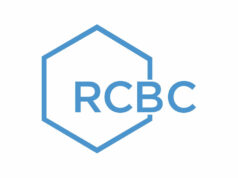YIELDS ON government securities (GS) rose last week as traders remained cautious on growing expectations of rate hikes from the US Federal Reserve and the Bangko Sentral ng Pilipinas (BSP).
On average, GS yields went up by 25.20 basis points (bp) week-on-week on Friday as bond prices dipped from previous levels, data from the Philippine Dealing and Exchange Corp. as of Sept. 14 showed.
With the exception of the 91-day Treasury bills (T-bills), all tenors saw their yields go up in the secondary market. At the short end, the 182- and 364-day T-bills climbed by 26.61 bps and 26.83 bps to yield 4.4497% and 5.1748%, respectively, while the rate of the 91-day T-bill fell by 54.72 bps to 3.5332%.
In the belly of the curve, the four-year Treasury bond (T-bond) posted a 54.11-bp increase to yield 6.8018% followed by the five-year T-bonds, which saw its rate climb 43.93 bps to 7.0089%. The two-, three- and seven-year debt papers followed, gaining 6.87 bps (5.7348%), 24.52 bps (5.7689%) and 13.44 bps (6.7534%), respectively.
At the long end, the 10- and 20-year T-bonds saw their rates go up by 88.44 bps (7.5571%) and 21.93 bps (7.6589%), respectively.
“GS yields increased this week due to widespread expectations of another US and PH rate hike this month,” said Guian Angelo S. Dumalagan, market economist at Land Bank of the Philippines (LANDBANK).
“Yields jumped the most [last] Monday after the US non-farm payrolls report beat market expectations. Trade tensions abroad merely tempered the rise in domestic interest rates,” he added.
Carlyn Therese X. Dulay, first vice-president and head of institutional sales at Security Bank Corp., shared the same assessment, adding that the rejection of all bids by the Bureau of the Treasury (BTr) for the reissued 10-year Treasury bonds last week “led [the] market to be defensive in prices across the curve in the secondary market.”
The BTr opted to reject all bids for its P15-billion offer of reissued 10-year bonds last Tuesday as tenders put forward by banks totalled P12.737 billion, below the amount the government wanted to borrow.
Had the BTr accepted all offers, the papers, which have a remaining life of nine years and six months, would have fetched an average rate of 7.64%, soaring by 129 bps from the 6.35% recorded in the bond offer in May.
The Treasury also rejected all bids for the 10-year papers when they were offered last July 3.
Meanwhile, economic managers are scrambling for solutions to curb inflation after it accelerated to 6.4% last month — its fastest pace in nine years. Even with elevated inflation being caused by supply-side issues, the central bank is widely expected to raise rates by another 50 to 100 bps by year-end to curb inflation expectations. The BSP has already raised rates by 100 bps since May.
Meanwhile, at the external front, market players are expecting another interest rate hike by Fed officials later this month. Fuelling these expectations was the increase in US non-farm payrolls — one of the metrics used in guessing the direction of US monetary policy — by 201,000 in August versus the 190,000 figure expected by economists. Given the low unemployment rate and increasing inflation rate in the US, Fed officials have been hawkish on the direction of monetary policy there.
For this week, Mr. Dumalagan said GS yields are expected to climb further given the sustained hawkish views on the monetary policy actions by the Fed and the BSP. “Trade concerns may still introduce some volatility,” he added, referring to the persisting trade tensions between the US and China.
For Security Bank’s Ms. Dulay, yields are expected to “trade within range” ahead of today’s T-bill auction, “which market expects to print 10-20 bps higher than previous auction levels.”
The Treasury is offering P15 billion worth of T-bills today. Broken down, the Treasury plans to raise P4 billion through the three-month papers, P5 billion for the six-month papers, and P6 billion in one-year T-bills. — Marissa Mae M. Ramos



